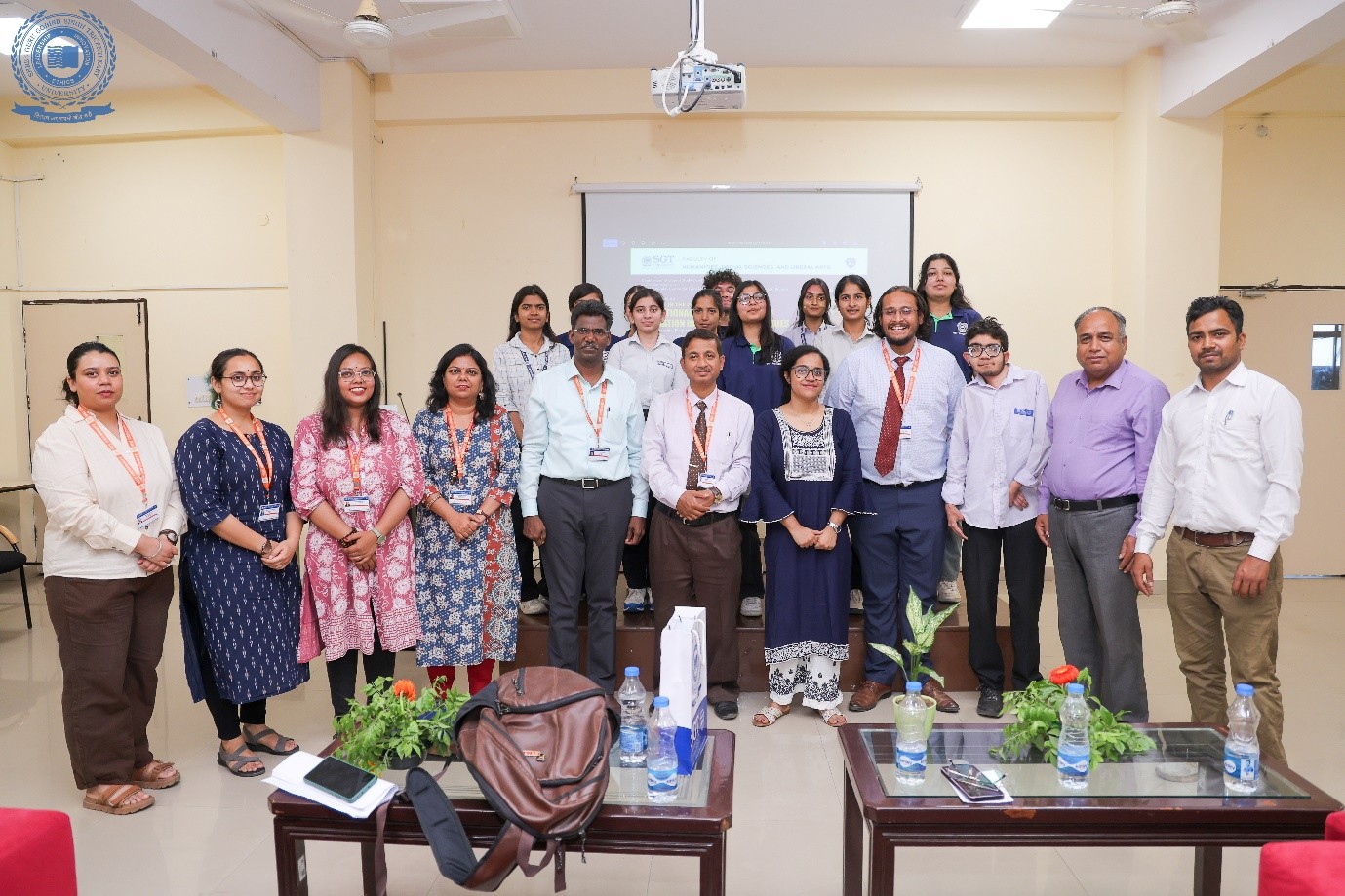Public Lecture
Updated on: April 10, 2025

On 10th April, the Department of Liberal Studies and Social Sciences, Faculty of Humanities, Social Sciences & Liberal Arts hosted a public lecture that witnessed strong student a faculty participation from faculty members from various faculties. The lecture aimed to critically examine how crime documentaries in the digital age influence public perceptions of horror, justice, and truth. By unpacking the techniques of sensationalism and the narrative strategies used in true crime media, the session explored the socio-political implications of storytelling in popular culture. The goal was to foster critical awareness among students about the ethics, aesthetics, and power dynamics involved in the representation of crime and violence in digital media.
One of the key outcomes of Dr. Asmita Kundu’s lecture was the interdisciplinary exploration of media and power. The session provided participants with a deeper understanding of how crime documentaries use horror aesthetics and sensationalism to shape public perception and emotional engagement. This approach bridged insights from media studies, sociology, and critical theory, offering a holistic view of the media influence on society. The lecture also prompted critical student engagement, with an interactive Q&A segment that saw active participation from the students. The discussion ranged from the ethics of true crime storytelling to the role of streaming platforms in constructing “moral panic.” This sparked an interest in interdisciplinary student research on media justice and the politics of narration.
The event established a platform for future dialogues within the broader initiative of the Faculty of Humanities, Social Sciences and Liberal Arts. The lecture energized student interest in media ethics, laid the groundwork for collaborative research inquiries, and affirmed the department’s commitment to fostering timely, critical, and reflective public scholarship.

